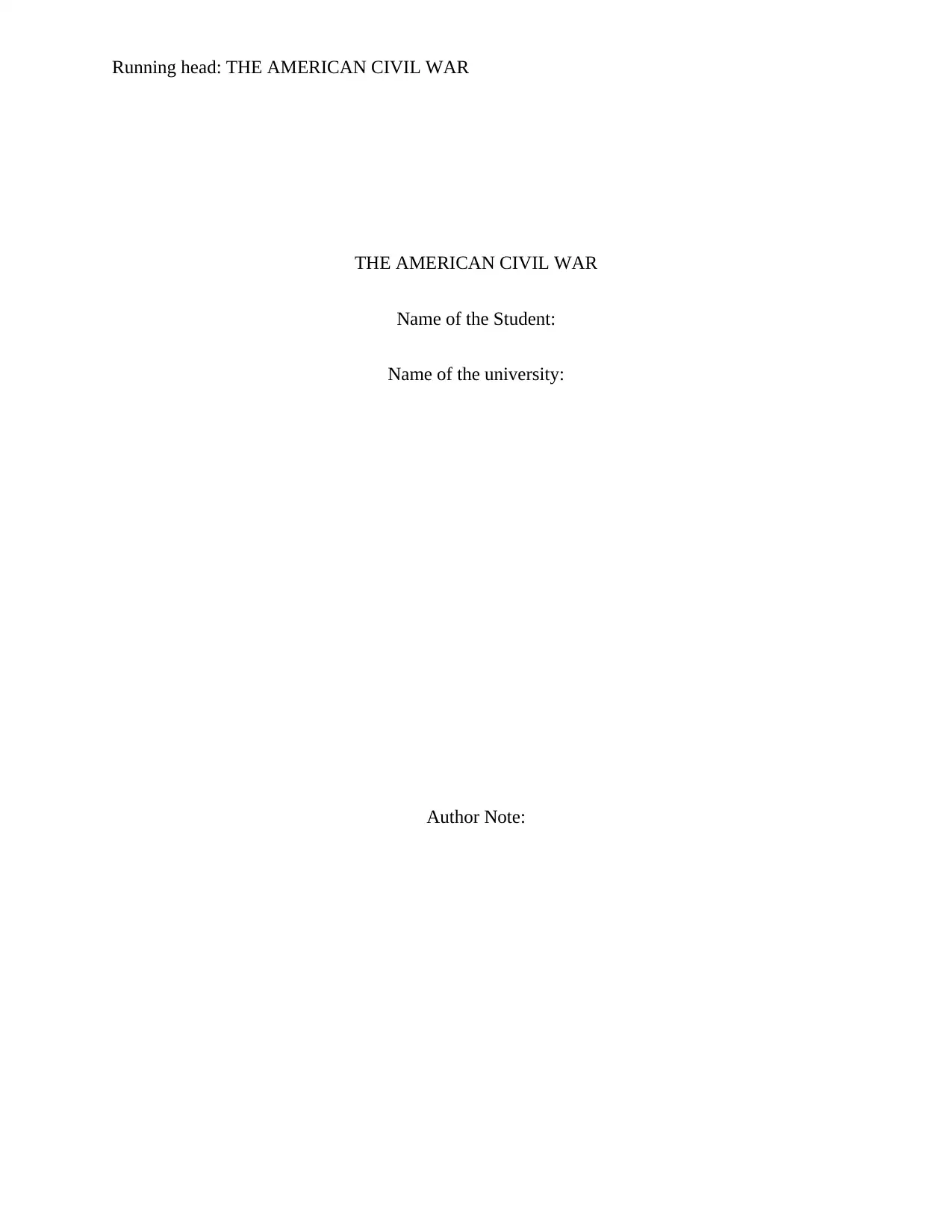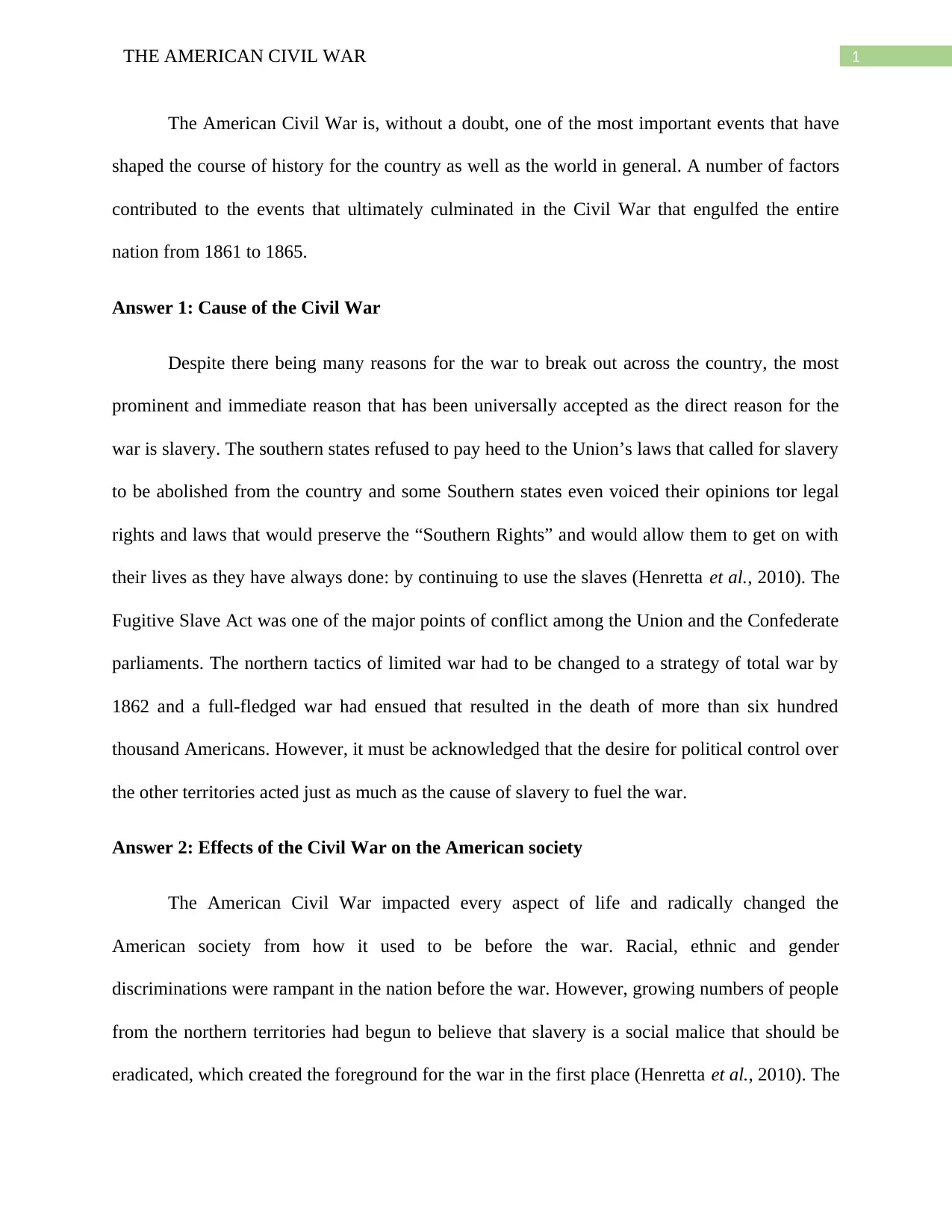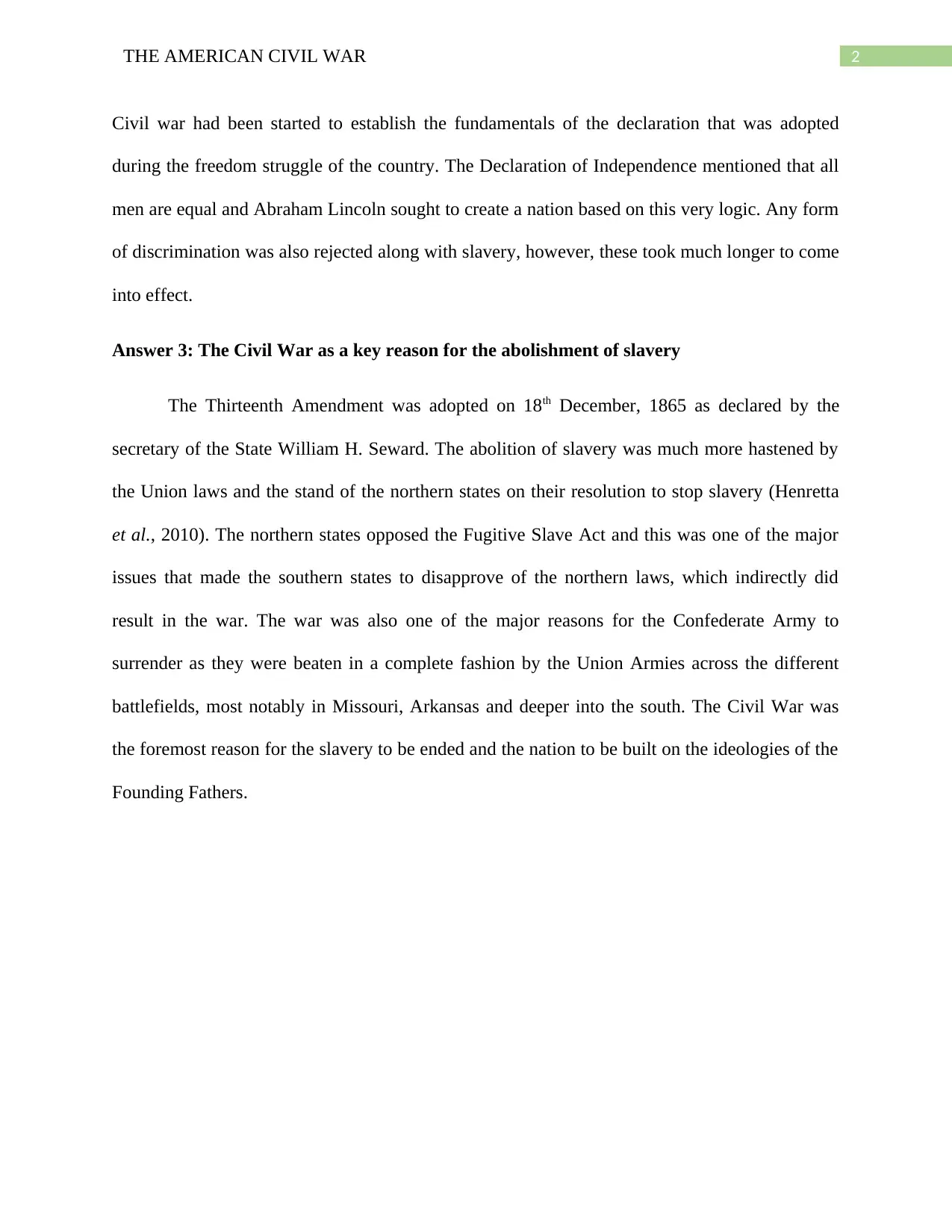Analysis of the American Civil War and its Societal Impact
VerifiedAdded on 2020/04/13
|4
|665
|97
Essay
AI Summary
This essay examines the American Civil War as a pivotal historical event that significantly altered the United States' societal landscape. It highlights slavery as the primary cause, alongside political tensions between Northern and Southern states, leading to a conflict from 1861-1865. The war's outcomes are discussed in terms of social transformations including changes in racial, ethnic, and gender relations influenced by the principles enshrined in the Declaration of Independence. Additionally, the essay addresses how the Civil War expedited the abolition of slavery through legislative measures like the Thirteenth Amendment and shifts in Union policies against acts such as the Fugitive Slave Act.
1 out of 4











![[object Object]](/_next/static/media/star-bottom.7253800d.svg)